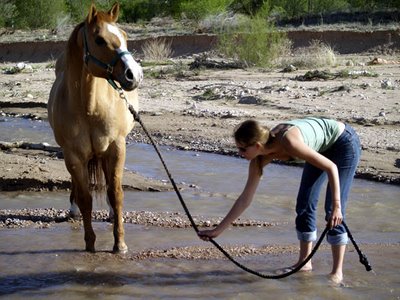You're really not willing to have an open discussion about this, are you? Ease up, man, no one is attempting to discredit your character. This could be a good discussion, but you're trying to turn this into something personal, and it's not.
Then perhaps it might be an interesting exercise to look through what I've attempted to discuss in here, and pay attention to the resulting comments.
What I'm doing, is keeping this thread on topic. Personal attacks have come my way, pointing them out and showing how I perceive is actually showing what is not pertinent to the discussion.
I mean, you can assume what I am trying to do that's fine, but you're absolutely wrong about what I'm "trying to turn this into". In fact, I've been saying the same thing over and over again.
A couple of points:
Nothing that I've seen on BIABrewer.info stands up to the standards you've presented here. You appear to be ignoring this.
I did not ignore this, but pointed out that 20 minutes or 1 day of viewing/forming opinion might be a bit of a myopic knee jerk reaction. I see no point in discussing this further. We'd love to have people join our discussions.
I feel like this place is paralleled to a dysfunctional family. Bear with me here, and it's simply an observation over a good deal of time. The demeanor here is to attack. As I've said before, there are some fine posters here, but too often the demeanor is terrible. People here get used to that, accept it even to a degree even if they do not like it. The ends justify the means?
Anyway, it's not like that on BIABrewer.info. So, viewing Pat's tongue in cheek presentation through a lense of dysfunction can throw our words out of context a bit for some readers. If that thread was posted here, sure it might ruffle some feathers, but we're very respectful to each other. Context, understanding can go a long way. This is one but not "the" standard I speak of (more on that later). We cannot please everybody, but will obviously take your perception into consideration. My analogy might be a bit extreme, I'm just relaying a concept. Anyway, you seem to want to redefine my words in a black and white fashion. I cannot stop you from doing this, perhaps taking me at my word and giving it a respectable amount of time might be the way to go? Or don't, I really don't care.
Before focusing on something I say, ask yourself if you are trying to rebut an opinion. That is very pointless, especially when asking for clarification first is always a better option.
The discussion is becoming rather convoluted, we really need to put a lot of this behind us to focus on the whole point of this thread, which is next.
As to RM-MN--without digging through all of his posts--I don't recall him ever telling anyone that they should mash 20 minutes. He shares his results--that is, what works for him. It is a good thing for people to try it themselves--even better if they respond back and share their experience. I'd wager that RM-MN would readily accept evidence that contradicts what he's finding, and take it into consideration. Disclaimer: I don't know the guy (or if he's even a guy)--I just find your attempt to discredit him sloppy and inconsistent.
Yes, the burden of proof is on the one making the claim. Good for the goose, good for the gander: You claim (carefully) that 90 minutes is accepted around the world as sufficient (did you mean necessary?). Are you willing to provide something to back this? Please don't lean on the semantics of 'sufficient.'
I do recall him pontificating his mash times, also without digging through his posts. We don't have to agree here.
Agreed. It is a good thing for people to try for themselves (been saying this the entire thread if you notice), but I feel they need to be properly informed of potential risks before doing so.
I also suggested RM-MN be more transparent with methodology, documentation, etc ... so that we may get a better glimpse of his variables. Do you disagree?
My attempt to discredit him is sloppy and inconsistent, because you are creating it in your mind. I'm basically trying to present logic, and I'm asking him to bring more information to the table if he's going to talk as I've seen him do (again we disagree here, so ...)
To clear the air. I feel it's necessary to teach 90 minutes, but reality is that it's sufficient considering this is what you find in most research and recipes. Admittedly, "90m" can be a bit ambiguous. Even 60 minutes could mean 90 minutes if sparge wasn't originally considered. This doesn't need to be explored much deeper than that for the sake of this discussion, so let's not pretend it does? Look around, 90 minutes is everywhere and it works across the styles. Efficiency problems have been worked out around the world under that umbrella so far, but not yet 20m. If 90 minutes was too short somebody would be looking hard against it, and increasing. The fact that many are shortening the time validates it enough.
And this leads back to BIABrewer's CBT, a standard that is trying to straighten all of this ambiguity out. I'm here, simply trying to help arm new brewers with the most reasonable starting strategy. They are reading these forums, things can be misread regardless of RM-MN's intentions. He's not outwardly telling anyone to do it, but he's not taking what I consider to be great care with them either. It takes a second of honestly to nip mistakes and confusion in the bud, and why not do that if you're experienced? The standard I speak of is this, the crux of my point ... I hope this is now clear and not misrepresented again in the future.
No disrespect ever intended. As with the music theory analogy I brought up before, it's best to learn the established rules before breaking them. Breaking them is part of the craft end of things, and I have great respect for that. The context of this discussion is not about that.






